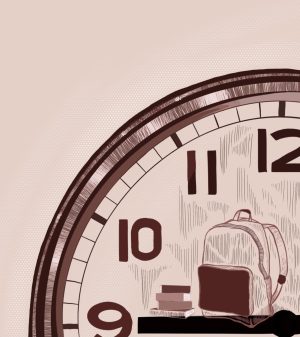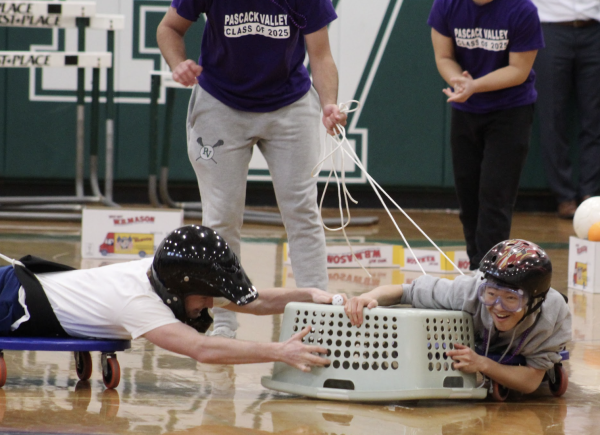May 16, 2022
As I sit here, writing this article, I am currently running on three hours of sleep.
Last night, I was stressed studying for a test, and in the back of my mind, the eight o’clock start time glared at me.
Coming into high school, I was given many warnings about the change in my sleep schedule, although I wasn’t prepared for the 2 a.m. sleep times happening weekly or the mounds of homework I would experience during junior year.
A bill was introduced to push back start times for school days until 8:30 a.m on Jan. 1, 2020.
The idea for a time change was created in order to better students’ mental health and wellness.
Waking up earlier for school can lead to less sleep for students which in turn leads to an increase in feelings of depression, suicidal thoughts, motor vehicle accidents, irritability, and fatigue. A lack of sleep, as well, has the potential to lead to a decline in academic performance and attendance at school.
“When people get more sleep at night and they’re more alert in the morning, they’re happier or at least more comfortable going to school. It cuts down on mental health issues,” Pascack Valleys’ Psychology teacher Ryan Walter said. “All the evidence seems to show pretty strongly [that 8:30 start times] are beneficial, so I don’t understand why we don’t do that.”
The American Academy of Sleep Medicine recommends teenagers between the ages of 13 to 18 get eight to 10 hours of sleep per night. However, an article was written by the CDC, the Center for Disease Control and Prevention, reported that 93% of high schools and 83% of middle schools in the United States start before 8:30 am.
You might say, rather than push back start times, schools should prompt early bedtimes for students. However, that might not be entirely possible.
In comparison to adults and children, teenagers’ melatonin levels rise two hours later, creating a sleep phase delay that pushes students’ bedtimes later. However, the early wake-up times don’t accommodate for this, creating a messed-up sleep schedule during the school week.
Although some people see the benefits of pushing back the start times, obstacles have presented themselves such as transportation and students’ participation in afterschool programs.
However, an easy solution can be presented for that problem. A requirement for all schools in New Jersey to push back start times effectively eliminates these problems.
Walter believes that in tandem with start times being pushed back, there also needs to be more education on how sleep affects teens both teenagers and adults.
“Sleep is the forgotten part of health,” Walter said. “Everyone thinks about physical health, mental health, exercise, and nutrition. But sleep always gets forgotten about. I think that building a program on the state level of awareness and education would make everybody healthier and happier.”
Sleep is hard to come by for high school students. We are forced into creating unreasonable wake-up times, messing with our brains; however, most of us now believe that sleep deprivation is normal.
In order to improve students’ overall well-being, school start times need to be pushed back to at least 8:30 a.m. In addition, more education on sleep for both students and teachers must be implemented into the curriculum in order to stress the importance of sleep and its overall effect on a student’s state of living.











